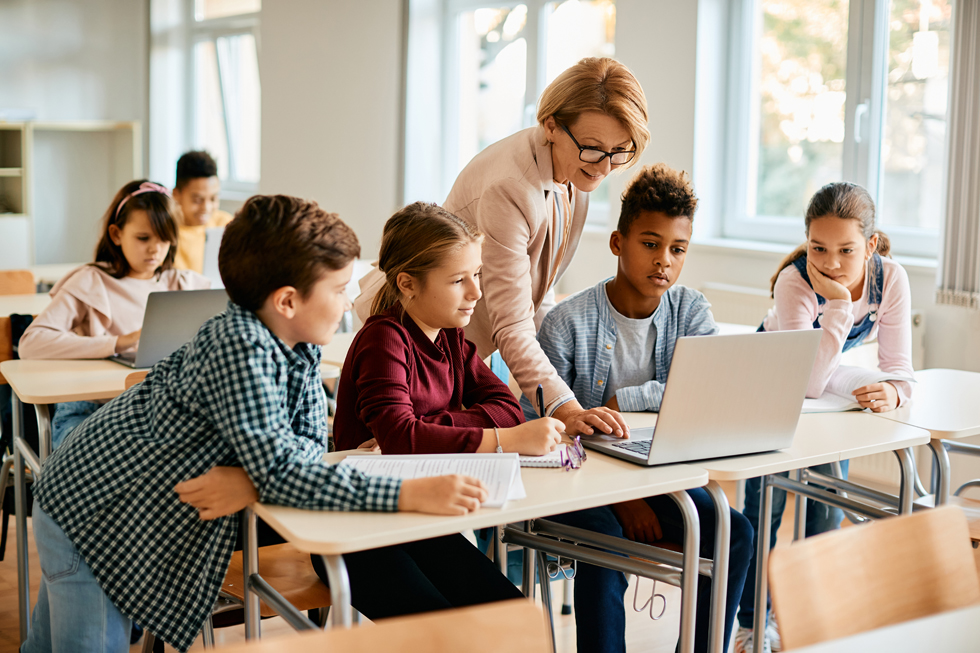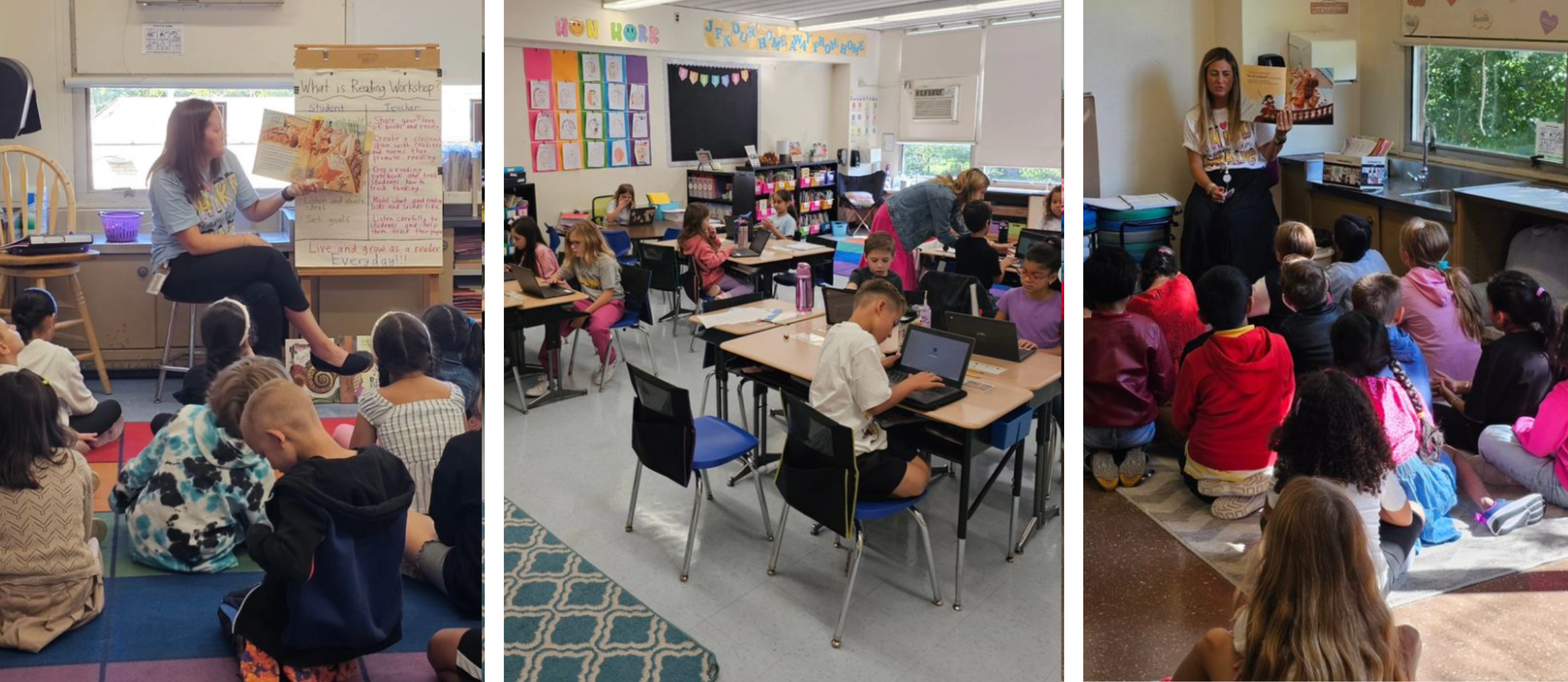Discover the Difficulties Facing Our Area: Save Temecula Schools
Discover the Difficulties Facing Our Area: Save Temecula Schools
Blog Article
Understanding the Relevance of Institutions in Youngster Growth and Community Growth
Schools work as pivotal institutions for youngster growth and area development, providing atmospheres where scholastic accomplishments are matched by the cultivation of social abilities and direct exposure to diverse perspectives. These educational settings not just advertise vital thinking and reliable communication however also foster compassion through collective tasks. In addition, schools' engagement with local areas with service-learning efforts reinforces the bond between households and educational institutions. This symbiotic partnership underscores the value of institutions in supporting energetic citizenship and long-lasting discovering behaviors. What are the specific systems by which these establishments accomplish such extensive impacts?
Academic Success
Academic success serves as a cornerstone of child growth, giving the foundation upon which future knowing and success are developed. Colleges play a crucial function in promoting this scholastic growth, using organized atmospheres where kids can obtain important understanding and cognitive skills. Standard curricula guarantee that students gain proficiency in core subjects such as mathematics, scientific research, and language arts, which are critical for both higher education and learning and specialist opportunities.
In enhancement to giving fundamental academic abilities, institutions likewise cultivate important thinking, analytical capabilities, and intellectual inquisitiveness. These cognitive competencies are essential for browsing complicated real-world situations and adjusting to the ever-evolving needs of the modern workplace. Teachers, as facilitators of knowing, employ diverse pedagogical strategies to deal with diverse understanding styles, consequently optimizing specific pupil possibility.
Furthermore, academic success is carefully linked to self-esteem and motivation. Kids who experience scholastic success are a lot more most likely to develop a favorable self-concept and a long-lasting enthusiasm for understanding. Colleges additionally offer different resources, such as collections and innovation, which additionally boost the academic experience and prepare students for a technologically advanced society.
Social Skill Development
Beyond scholastic success, the duty of schools in social ability advancement is vital. Schools work as a main location for kids to learn and practice crucial social abilities such as communication, teamwork, and problem resolution. In the structured setting of a classroom, students engage with peers, educators, and other institution personnel, offering countless opportunities to establish these vital capabilities.
Effective social skill advancement in colleges is facilitated through team activities, joint projects, and extracurricular programs. These interactions assist trainees recognize social norms, build empathy, and promote a sense of area. For example, group projects show students exactly how to collaborate in the direction of a common goal, listen to various viewpoints, and browse disagreements constructively.

The growing of social skills throughout academic year lays a structure for future personal and professional relationships. Save Temecula Schools. As students develop, the ability to effectively work together and connect becomes progressively vital, emphasizing the school's vital duty in all natural child development
Direct Exposure to Variety
Direct exposure to variety in institutions is basic to cultivating an inclusive mindset and expanding trainees' viewpoints. Schools offer as a microcosm of the broader society, and coming across varied societies, languages, and socioeconomic backgrounds within this environment outfits trainees with necessary skills for navigating an increasingly globalized world. This exposure urges compassion, decreases bias, and advertises common regard amongst peers.
Research study suggests that trainees that engage with peers from diverse histories exhibit much better problem-solving skills and creative thinking. This understanding of diversity prepares students for future work environments that value modern capability - Save Temecula Schools.

Community Engagement
The benefits of diverse class prolong beyond the institution walls, promoting a strong sense of area interaction among pupils. By communicating with peers from numerous cultural, socioeconomic, and ethnic backgrounds, students acquire a wider point of view and a recognition for diversity. This direct exposure encourages them to come to be energetic people who want to contribute positively to their communities.
Colleges that highlight area engagement frequently include service-learning projects, which allow trainees to resolve real-world troubles while using scholastic abilities. These projects not only boost students' check that understanding of their coursework however additionally instill a sense of duty and compassion. Partnerships between colleges and neighborhood companies offer pupils with opportunities to participate in area events, further solidifying their role as proactive neighborhood members - Save Temecula Schools.
In addition, parental and community participation in institutions reinforces the bond between academic institutions and the areas they great post to read serve. With these initiatives, institutions play a crucial role in supporting community engagement and fostering societal development.
Lifelong Knowing Habits
Establishing long-lasting discovering practices is essential for a youngster's continual growth and adaptability in an ever-changing world. Institutions play a critical duty in instilling these practices by producing a setting that fosters interest, critical reasoning, and a love for understanding. With varied educational programs and after-school activities, educators encourage students to check out various subjects, examine info seriously, and use their finding out to real-world circumstances.

In addition, institutions give a structured atmosphere where youngsters can develop self-control and time monitoring abilities, both of which are critical for continual learning. By highlighting the importance of establishing goals, assessing progression, and adapting techniques, universities prepare trainees to navigate the intricacies of grown-up life, guaranteeing they remain lifelong students and factors to culture.
Conclusion
In verdict, institutions are crucial in cultivating kid growth and area development by supplying settings helpful to scholastic achievement, social skill advancement, and direct exposure to variety. Ultimately, schools cultivate lifelong discovering practices, furnishing people with the needed knowledge and skills to contribute positively to society.
In the organized environment of a classroom, students connect with peers, instructors, and other college team, supplying various opportunities to establish these vital abilities.
In essence, exposure to variety within institutions not just improves private pupils but likewise reinforces the social fabric of the area as a whole.
The advantages of varied classrooms extend past the college walls, promoting a strong feeling of neighborhood interaction among students.Institutions that emphasize community engagement commonly incorporate service-learning projects, which enable students to attend to real-world issues while using academic skills. Partnerships between institutions and regional companies supply trainees with chances to participate in neighborhood occasions, further strengthening their role as aggressive neighborhood members.
Report this page